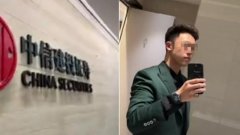Liao Yan, deputy minister of the Ministry of Finance of China, said that more electric vehicles are needed worldwide, and China's manufacturing capabilities are helping to cope with climate change and curbing inflation worldwide.
According to Bloomberg, Liao Yan, who participated in the Group of Twenty Group (G20) Group Twenty Group (G20) and the central bank governor, was interviewed on Friday (July 26) local time.
Liao Yan said that by providing the product with value, China has been the power to reduce inflation to the world for decades.
Liao Yan said: "When the country strives to achieve the 2030 carbon emission reduction goals, China is now providing green products to the world."At that time, the global demand for new energy vehicles will reach 45 million to 75 million units, far exceeding the current global supply capacity.
Liao Yan said in an interview that government subsidies are not the main reason why Chinese industries have more competitive advantages than their peers.The more important factor is that the enterprise has invested in research and development, entrepreneurship and technological innovation for many years. "China's experience in reform and opening up in the past 40 years tells us that no industry can become a global competitive industry only by government support."
He also said that some countries have performed backward in development of electric vehicles because they have an advantage in the traditional car field, so they have not shifted their focus to emerging industries.In contrast, China has to seek development in emerging fields such as electric vehicles due to the lack of advantages in the traditional automobile market.
Liao Yan said that the imbalance in supply and demand is a natural phenomenon that any market economy will appear. Some of the reason is that the company will make its own investment decisions, and in the long run, they do this to meet the higherneed.The power of the market proves that their decisions are right or wrong.
He said that it is not rare for capital to pour into emerging industries in large quantities. For example, in the past, investment frenzy in industries such as information technology, shale gas and biopharmaceuticals led developed countries to overcapacity.
Liao Yan said that although China is concerned about the concerns of major economies on the problem of overcapacity, China also worried about trade threats such as tariffs.
"We should communicate frankly according to market economic rules and facts," he said that China and the United States will "continue to discuss this issue at the China -US Economic Working Group Meeting."
When Trump was president, Liao Yan was a key member of the Chinese negotiation team of the trade war.He went to the United States as the assistant of Liu He, then the Vice Premier of the State Council of China, and met Trump in an oval office.When the US Treasury Minister Yellen visited China in April this year, Liao Yan greeted her.


